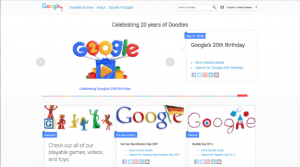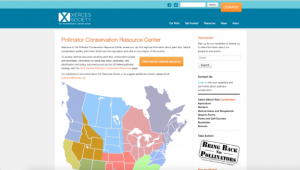General Interest
Back to Top
|
 |
|
Community Tool Box
|
Social studies |
|
Readers interested in learning how to build healthier, more resilient communities will likely find Community Tool Box to be a valuable resource. Visitors will find numerous options for "practical, step-by-step guidance in community-building skills," such as assessing community needs and resources, developing a strategic plan, building a community's leadership capacity, and more. In the menu under Learn a Skill, readers will find a table of contents leading to 46 chapters of detailed guides, as well as 16 toolkits organized around specific types of community work. The Help Taking Action menu includes a troubleshooting guide, free online courses with eight modules (such as "Setting Community Priorities Based on Identified Issues,") and an extensive list of databases of best practices leading to additional online resources. Community Tool Box is a free public service offered by the University of Kansas, where it is developed and managed by the KU Center for Community Health and Development. In addition to English, this resource is also available in Spanish, Arabic, and Farsi. [JDC] |
|





|
|
 |
|
 |
|
 |
|
Recollection: Thirty Years of Photography at the New York Public Library
|
Arts |
|
Curated by Stephen C. Pinson (now at the Metropolitan Museum), Recollection: Thirty Years of Photography at the New York Public Library (NYPL) ran from September 30, 2010, through January 2, 2011. This exhibit was intended as a follow-on to the 1981 exhibition, "96 Images: From Talbot to Stieglitz." The online version primarily features portraits created by approximately 75 photographers, including well-known names such as Eugene Atget, Dorothea Lange, Weegee, Walker Evans, and Gordon Parks. There's also a history of the NYPL photo collection and a curator's note. At the beginning of the exhibition, viewers are treated to a rotating slideshow of images with a moody soundtrack provided by Houses' "Soak it up," available as a free download. Entering the exhibition takes visitors to longer information about each image, and can be sorted by photographer, theme, or origin (provenance). The site uses Flash, making the online exhibition not viewable on mobile devices. A short movie version of the slideshow is available to play on mobile devices and the mp4 download of "Soak it up" also works. [DS] |
|





|
|
 |
|
Google Doodle Archive
|
Arts |
|
In addition to its eponymous search engine, Google (which recently celebrated its twentieth birthday) is well-known for its doodles that frequently replace the company's official logo on its homepage. These doodles, which Google describes as "the fun, surprising, and sometimes spontaneous changes that are made to the Google logo" and whose first occurrence actually predates the incorporation of Google itself, are often used to visually celebrate holidays, commemorate anniversaries of historical events, and honor the lives of scientists, artists, and historical figures. The Google Doodle Archive allows interested readers to explore the more than 2,000 doodles that the company has created thus far. As of this writing, these include Google's 20-year doodle retrospective, a doodle from "this day in history," and a link to view all of Google's interactive doodles, as well as their full archive of doodles in reverse chronological order. Originally created by Google's webmaster Dennis Hwang (who was an intern at the time), the doodles today are generally the work of a team of illustrators and engineers. [JDC] |
|





|
|
 |
|
The Atlantic Crossword
|
Language Arts |
|
Crossword-loving readers have a new source for their fix: this week, The Atlantic launched their daily crossword puzzle, which is available for free on their website. This crossword, which its editors describe as a "mini puzzle [that] gets bigger and more challenging each day," can be solved as a web app that includes such options as a timer, error check mode, and the ability to check or reveal a particularly troublesome letter or word (or the entire puzzle grid). For crossword purists, there is also the option to print the puzzles to solve them the old-fashioned way. This is not the first time The Atlantic has offered a crossword puzzle -- their earlier offering, "The Atlantic Puzzler," began in 1977 and continued its monthly print run until 2006. This latest iteration is written by Caleb Madison, who began contributing crossword puzzles to The New York Times while still an undergraduate at Yale University. New puzzles are added each weekday, and the full archive of puzzles remain online for anyone who misses a day, with the earliest puzzle of this run dated September 24, 2018. [JDC] |
|





|
|
 |
|
Xerces Society: Pollinator Conservation Resource Center
|
Science |
|
Readers interested in bees and other pollinators may appreciate the Pollinator Conservation Resource Center. This collection of resources is offered by the Xerces Society for Invertebrate Conservation, a science-based international nonprofit that "protects wildlife through the conservation of invertebrates and their habitats." Visitors to the Pollinator Conservation Resource Center will find an abundant collection of links to pollinator information, organized regionally and covering the continental US and Canada. Clicking the desired region on the map leads to an assembly of resources curated specifically for that region. For example, under the Great Lakes region, readers will find links to recommended pollinator plants, conservation guides, numerous native pollinator plant nurseries and seed companies, resources for bee species identification and monitoring, and policy information. There is also a set of national resources. Many of the resources were created by the Xerces Society in collaboration with local universities, while others were produced by universities or by government agencies. The Pollinator Conservation Resource Center itself is a collaboration between the Xerces Society and the Neal Williams Lab at the University of California, Davis. [JDC] |
|





|
|
 |
|
Serial
|
Social studies |
|
The podcast Serial has been entrancing audiences since it first launched in 2014, and as of this writing, it is the most popular podcast of all time. Each season of this innovative podcast tells a different story from the criminal justice system, and one of the many things that sets Serial apart is the way it lets listeners in on the process of investigative journalism. In its groundbreaking first season, which netted Serial the first Peabody award ever given to a podcast, the show investigated the murder conviction of Adnan Syed, while the second season focused on the case of Bowe Bergdahl, who was dishonorably discharged from the US Army. Serial's third season, which just launched in September 2018, will examine the criminal court proceedings of Cleveland, Ohio. A spinoff of National Public Radio's This American Life, Serial is produced in collaboration with WBEZ Chicago and hosted by Sarah Koenig. Those interested may listen to Serial on the podcast's website, via Apple Podcasts, Google Podcasts, Pandora, or on many other podcast platforms. The Serial website offers ample supplementary content for each episode, so it is well worth exploring. [JDC] |
|





|
|



















